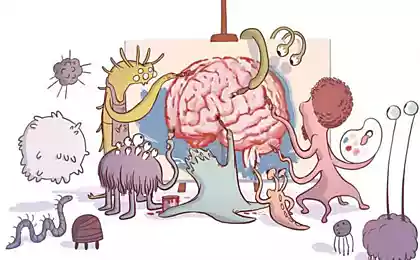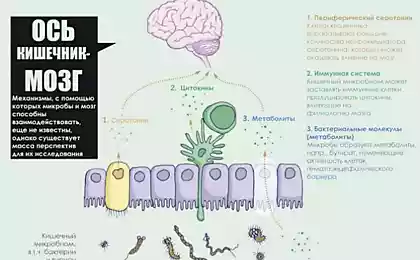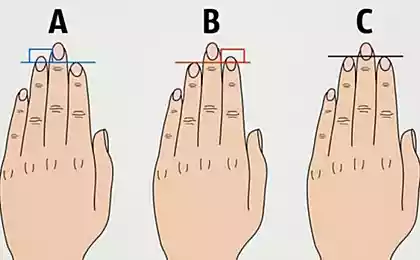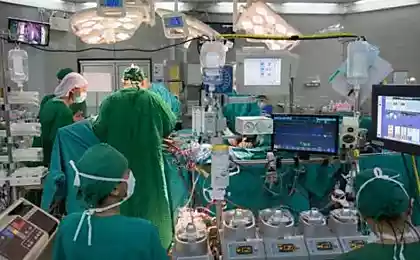1405
The robotic arm controlled by the brain paralyzed man
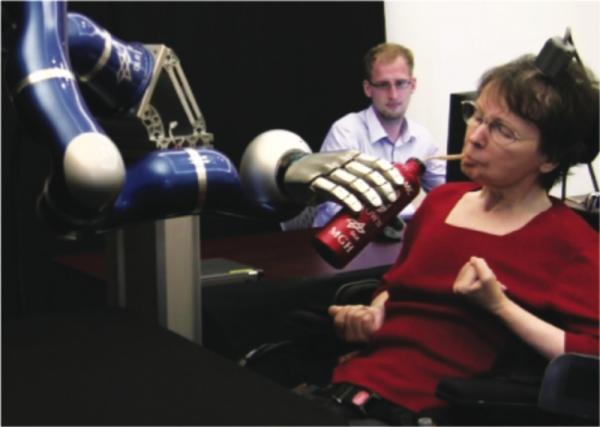
In April 2011, a paralyzed woman named Cathy Hutchinson, for the first time after almost 15 years was taken to drink a cup using a robotic arm controlled by her thoughts.
Hutchinson was paralyzed when she suffered a car accident that damaged her brain, turning off almost all of its motor function from the rest of the body. She was left unable to speak or move.
The project entitled BrainGate2 can move us closer to the day when the prosthetic or robotic hands can restore people's freedom of movement. This - the first controlled clinical trial of the human brain automated limbs for people, according to the report neuroscientist John Donoghue of Brown University and the Department of Veterans Affairs. Donohue - one of the leading researchers in the test, the results of which were published in this week's issue of the journal Nature.
"The desire to number 1 in many patients - a return movement of the hand," said Donohue.
Project BrainGate - this cooperation between the Department of Veterans Affairs, Brown University, the General Hospital of Massachusetts, Harvard Medical School and the German Aerospace Center (DLR), who designed the manipulator.
Project BrainGate, got his first success with the people in 2006, when a patient by the name of Matt Nagle, who was paralyzed after the accident, was able to demonstrate control of a computer mouse cursor, using the first version of the system BrainGate.
Donoghue and his colleagues said that more will be years before the device will be available to patients, moreover, it still must be approved by the Office of the Food and Drug Administration.

